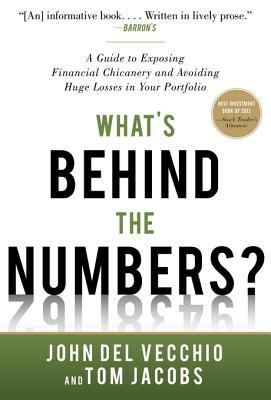
What's Behind the Numbers?
A Guide to Exposing Financial Chicanery and Avoiding Huge Losses in Your Portfolio
کتاب های مرتبط
- اطلاعات
- نقد و بررسی
- دیدگاه کاربران
نقد و بررسی

December 1, 2012
Densely structured handbook, full of subheads and tables and big numbers, on how to structure a portfolio. You've got to hand it to the publisher for chutzpah: Sam Antar, the former Crazy Eddie CFO and convicted felon, endorses this book as a guide to the financial fraud that Wall Street perpetrates daily. And not just fraud: The numbers in the financial world are so big and so fluid that it often seems that even the talking heads on the business channels don't understand what they mean. Consider overvalued companies, bid up far beyond their worth through the magic of the machine. Write fund manager Del Vecchio and Motley Fool veteran Jacobs, it's important to "identify these companies by looking for a high price-to-sales ratio, specifically one in the highest decile." Fair enough, but what constitutes a high ratio, and why look at the highest decile? The authors explain, and well, but in language that is necessarily daunting and that presumes some serious dedication on the part of readers, who are likely coming to this book in the hope of making money. That can be done, the authors write, but through the practice of some fundamentals, including one that is so often overlooked in a culture of churn--namely, lose less, make more. Del Vecchio and Jacobs look sideways and decidedly askance at supposed hedges such as gold, mostly because it "really has been worth only what people say it is," and locked-up assets ("I prefer hard assets in use rather than in storage"). The overriding message is study, study and study the numbers some more but always with this understanding: "Every financial statement offers the opportunity for manipulation, because they all interrelate." A highly useful companion to making financial decisions, though not for the innumerate or the casual investor.
COPYRIGHT(2012) Kirkus Reviews, ALL RIGHTS RESERVED.

























دیدگاه کاربران